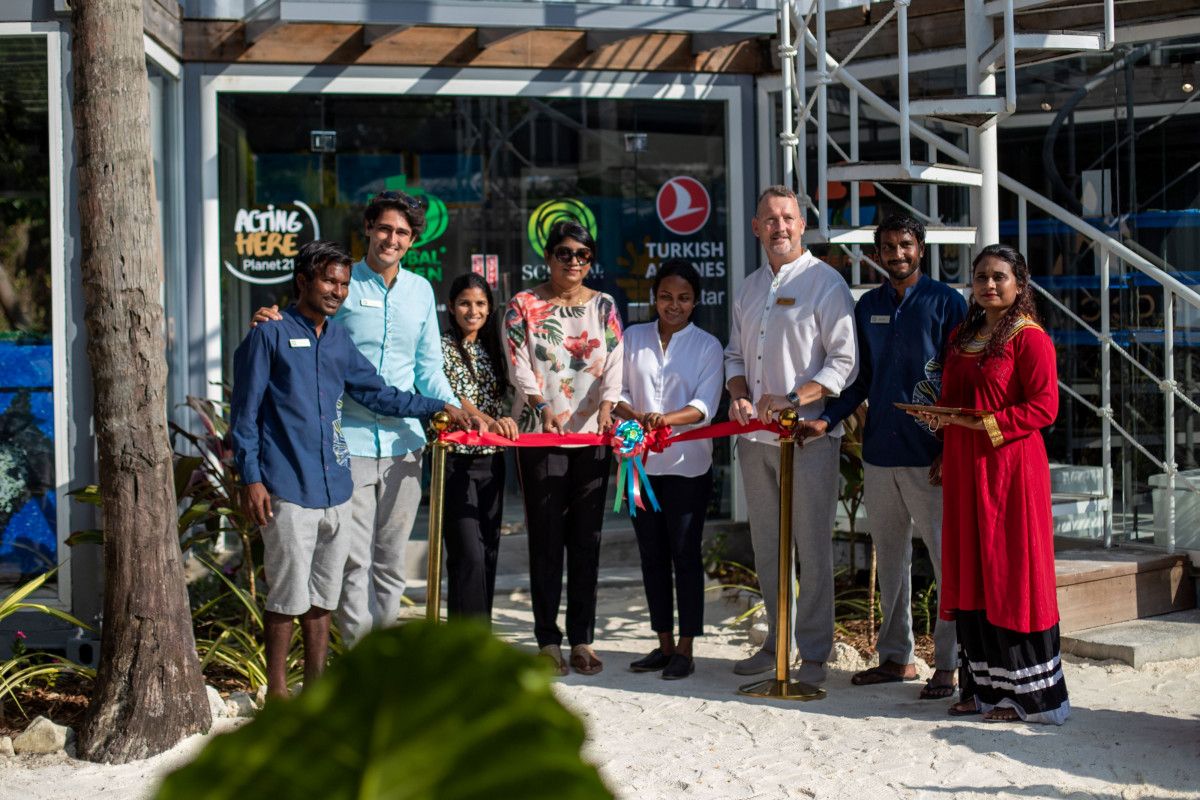News
THE SUSTAINABILITY LAB: A PIONEERING NEW PROJECT AT FAIRMONT MALDIVES

Fairmont Maldives Sirru Fen Fushi, a private island in the remote Shaviyani atoll, has unveiled the latest in a series of pioneering environmental projects – the Sustainability Lab – the first of its kind in the archipelago. A hub of eco-education, the Sustainability Lab will turn plastic waste into bespoke souvenirs and unique products, educate guests and empower local communities. With the launch of our Sustainability Lab project, we aspire to be as close to zero waste as we can using current and future technology improvements to allow us to find better ways to reduce, reuse, recycle and upcycle our waste, whilst inspiring others globally to help secure a better future for our oceans and communities.
As tourism continues to grow and develop in the Maldives, so too does concern regarding single-use plastics and its impact on the pristine ecosystems - experts claim that by 2050 there will be more plastic in the ocean than fish. Fairmont Maldives’ mission? To fully recycle all the plastic, waste generated by the resort and surrounding local communities, and ultimately, remove ocean plastic from the Maldivian environment.
Minister Aminath Shauna (Maldives’ Minister of Environment), Minister Mariya Ahmed Didi (Maldives’ Minister of Defence), and Ms. Sabra Ibrahim Noordeen (Maldives’ Special Envoy for Climate Change) were present during the ribbon-cutting ceremony held last 3rd February 2022.
Turning Waste into Wonder
Specialised machinery in the Sustainability Lab will transform and repurpose plastic waste into beautiful bespoke souvenirs, including luggage tags in the shape of turtles, mantas and sharks. After plastic has been collected from the beach, reef, and ocean, they are separated alongside glass and aluminium, before a series of machines are used to shred, melt, shape and press it into various products – an extruder melts plastic into moulds to create unique shapes, a sheet press will make custom designed furniture and low-grade plastic, glass and sand will be transformed into recycled plastic building bricks. The resort has already processed over 725 kg of plastic in the lab to date, turning the waste into exquisite and unique furniture, useful stationary for local schools including rulers, clipboards, and carabiner hooks, as well as turtle-shaped luggage tags for guests.
Community Upliftment
Community upliftment is part of Fairmont’s DNA, and the Sustainability Lab will eventually become a recycling centre in the atoll and beyond, creating a culture of sustainability and accountability in local communities. Surrounding islands will be encouraged to collect, sort, and recycle their plastic waste by sending it to Fairmont Maldives rather than leaving it to landfill or to be disposed of in the ocean.
What’s more, the resort has partnered with seven local schools in Shaviyani Atoll for the Fairmont Award Scheme, whereby the sustainability team will visit the schools to teach classes and host workshops on recycling, marine biodiversity, climate change and ocean conservation. Local children are also invited to visit the resort to witness the Sustainability Lab in action in addition to the island’s other conservation projects; encouraging the next generation to care passionately about protecting their natural ecosystem.
Educating the Next Generation of Eco-Conscious Travellers
The Sustainability Lab will become the centre of Fairmont Maldives’ wider sustainability initiatives, offering a variety of educational programmes and activities to provide guests with first-hand experience in conservation research. Guests can join the sustainability team to collect plastic waste before learning how to use the machines and make their own products, learning the importance of segregating and recycling plastic and how it can be commoditised to make beautiful bespoke gifts and souvenirs.
Pioneering Programmes
One of the biggest problems facing sea turtles in the world today is the large quantity of plastic polluting the oceans. To emphasise the importance of tackling this issue, Fairmont Maldives has launched their Turtle Ranger Program, whereby guests can learn about the various conservation methods and techniques to better protect this endangered species, and help our marine biology department collect Photo ID tracking data, which we collect on behalf of our partner the Olive Ridley Project, a Maldives-based NGO focused on turtle research. Guests can join the Marine Biologist to protect turtle nests, assist hatchlings in their journey from nest to ocean, rescuing turtles entangled in ghost nets and collecting vital tracking data to monitor migration patterns.
As part of the programme, the resort now tracks over 50 resident Hawksbill turtles, and in 2021, they released over 1,200 baby green turtles born on the east coast of the resort. The Turtle Rangers also carry out workshops in the Sustainability Lab, converting plastic removed during beach cleaning into turtle shaped products using the innovative recycling machines.
These initiatives are part of Fairmont Maldives’ Save the Ocean programme which is split into three key projects; reef conservation and protection, the Sustainability Lab, and an educational awareness campaign to resort guests and the local community. Each project focuses on different aspects of a sustainable way of saving the ocean and protecting marine biodiversity in the Maldives.